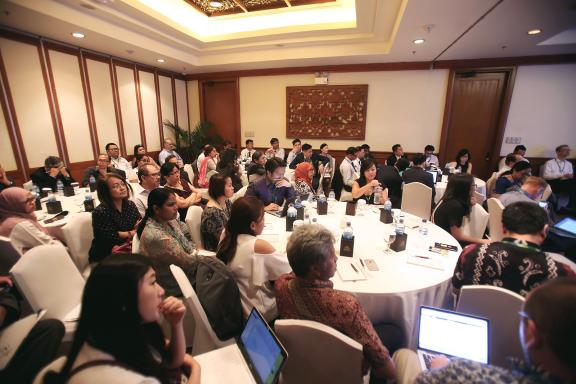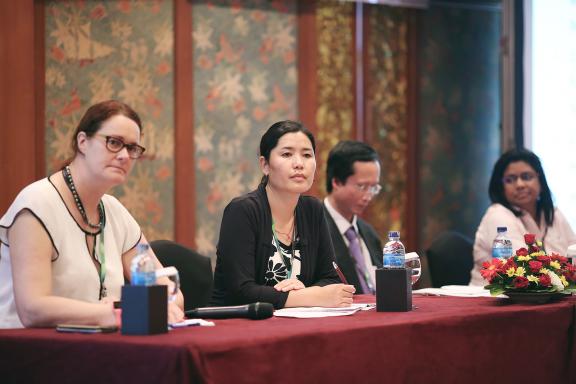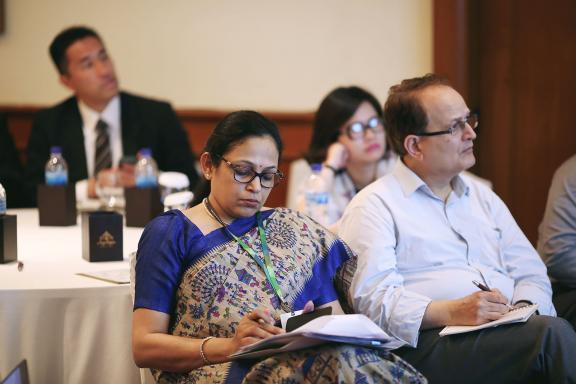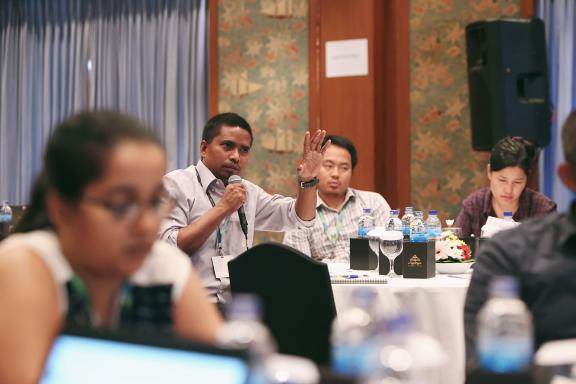Asian private sector ambition key to climate solution, Dialogue finds
Private sector ambitions driving the Asian economic powerhouse can be funnelled to complement public sector-funded climate action, GCF’s Structured Dialogue with Asia has concluded.
Private sector ambitions driving the Asian economic powerhouse can be funnelled to complement public sector-funded climate action, GCF’s Structured Dialogue with Asia has concluded.
Reflecting the key role of Asia in responding to climate change, a four-day gathering of GCF and key partners found the diversity of the region requires a flexible climate finance response to match national needs.
These range from government-led activities boosting resilience against climate disasters to tapping the profit-seeking dynamics of corporations to fund low-carbon energy solutions.



GCF brought together representatives from key organisations - including 23 governments, corporations, NGOs and GCF Accredited Entities - to the Indonesian island of Bali on 26 to 29 April to explore climate finance priorities and opportunities. The Dialogue also provided participants a chance to tell GCF how the Fund should deploy its resources to best fit national needs.


During the Dialogue, 19 Asian countries provided detailed plans about how they intend to tackle climate change. These proposals included a strong desire to tap GCF support, totalling USD 2.6 billion to fund a range of climate initiatives.
The Dialogue found while governments will continue to play a central role in “mainstreaming” climate action, there is increasing ambition to tap private sector investment addressing the diverse range of Asia’s mitigation and adaptation needs.

“As Asia has been a driver of global economic growth, it can also drive the global response to climate change,” said GCF Executive Director Howard Bamsey, during a high-level exchange of national climate ambitions during the Dialogue. “We can help change the direction of private sector investment.”
Malaysia’s Minister of Natural Resources and Environment, Haji Wan Junaidi bin Tuanku Jaafar, said his government has been increasingly turning to green businesses to deal with climate change.
“Thanks to a recent government decision, we have now invested USD US1.5 billion to help kick start private sector support of climate action in green technology, ranging from energy, waste, agriculture and forest activities,” he said.

The Minister pointed to the importance of the private sector in addressing one of Malaysia’s main climate change concerns. He envisages protecting the nation’s tropical forests by transforming the forest sector into natural capital.
Suahasil Nazara, chair of the Indonesian Ministry of Finance’s Fiscal Policy Agency (a GCF National Designated Authority) noted the potential of private sector-driven finance in his country, including an increasing interest in using green bonds.
The Dialogue confirmed the leading role of national governments in setting policies that draw in private sector investment and mainstream climate change across all sectors of national development.
Senator Loren Legarda said her chairing of Philippines Senate committees in both climate change and finance was key to her ability to set an ambitious climate agenda. This includes her current proposal to establish environmental units in every Philippine banking institution to ensure projects subject to financing applications conform to environmental laws.
The Philippine Senator stressed the need to “involve the private sector in striking a balance between economic development and environmental protection.”
Another underlying theme of the Dialogue was a common concern about climate vulnerability, shared across participating countries’ wide swathe of development stages.
Punya Prasad Regmi, chief economic advisor of Nepal’s Ministry of Finance, said his country was particularly prone to landslides and droughts, while noting how climate disasters can disrupt development goals. He described how his government is integrating climate consideration across its whole range of development plans to pull Nepal out of Least Developed Country status by 2025.
The Asia Structured Dialogue has provided an invaluable guide to GCF as it enhances its engagement with countries in this dynamic region, armed with a better understanding of how to apply its diverse set of climate finance tools.